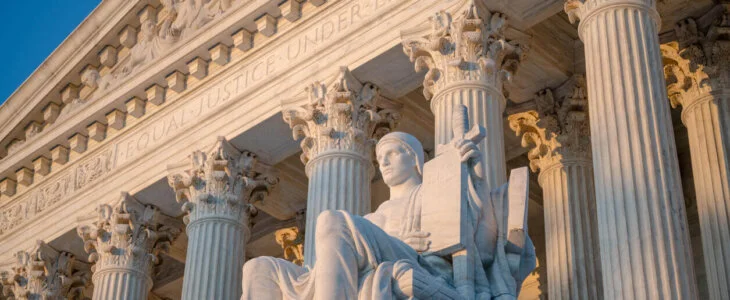On April 5, 2021, the U.S. Supreme Court declined to hear arguments in two cases in which employees alleged companies violated federal anti-discrimination law by failing to provide religious accommodations. While the high court has taken a more expansive view of religious liberties in recent rulings, is it unclear whether turning away these cases indicates a shift by the justices.
Religious Rights in the Workplace
In both cases, employees accused companies of violating Title VII of the Civil Rights Act of 1964 (Title VII), which prohibits employment discrimination based on several protected characteristics, including religion.
Under the law, an employer must reasonably accommodate workers’ religious practices, unless such an accommodation would cause the employer “undue hardship.” In a 1977 ruling, the Supreme Court determined undue hardship to be anything more than a minor, or de minimis, burden.
The plaintiffs alleged their employers failed to accommodate requests for time off to meet religious obligations. The appeals were brought by two men of different Christian denominations, a Jehovah’s Witness from Tennessee and a Seventh-day Adventist from Florida.
The plaintiff in the Tennessee case, a leader in the Jehovah’s Witness congregation in a Memphis suburb, worked as a dispatcher in a large public utility. He missed two days of work for religious observances in 2015 after his requests for time had been denied and was suspended two day’s pay by his employer.
The plaintiff in the Florida case, a member of the Seventh-day Adventist Church, was offered a job with a company that was revoked after he disclosed that he could not work on the Sabbath, which he observed from sundown on Friday to sundown on Saturday. The company said in a court filing that the plaintiff lied about his ability to work weekends during the screening process.
Both men sued in federal court, claiming religious discrimination in violation of Title VII. Lower courts rejected plaintiffs’ claims of religious bias, holding that the requested accommodations would have placed an undue burden on the employers, based on the “de minimis” standard.
Why This Matters
When an employee’s or job applicant’s sincere religious belief conflicts with an employment policy, employers are required to reasonably accommodate those beliefs. As stated above, the accommodation must not pose an undue burden, and the Supreme Court found no basis to hear these cases. Whether there will be stronger challenges to the minimal standard in future cases remains to be seen, but at least three justices have previously opined that the standard should be revisited. In the meantime, workers in New York who believe that their religious rights have been violated should consult with an experienced employment lawyer.

